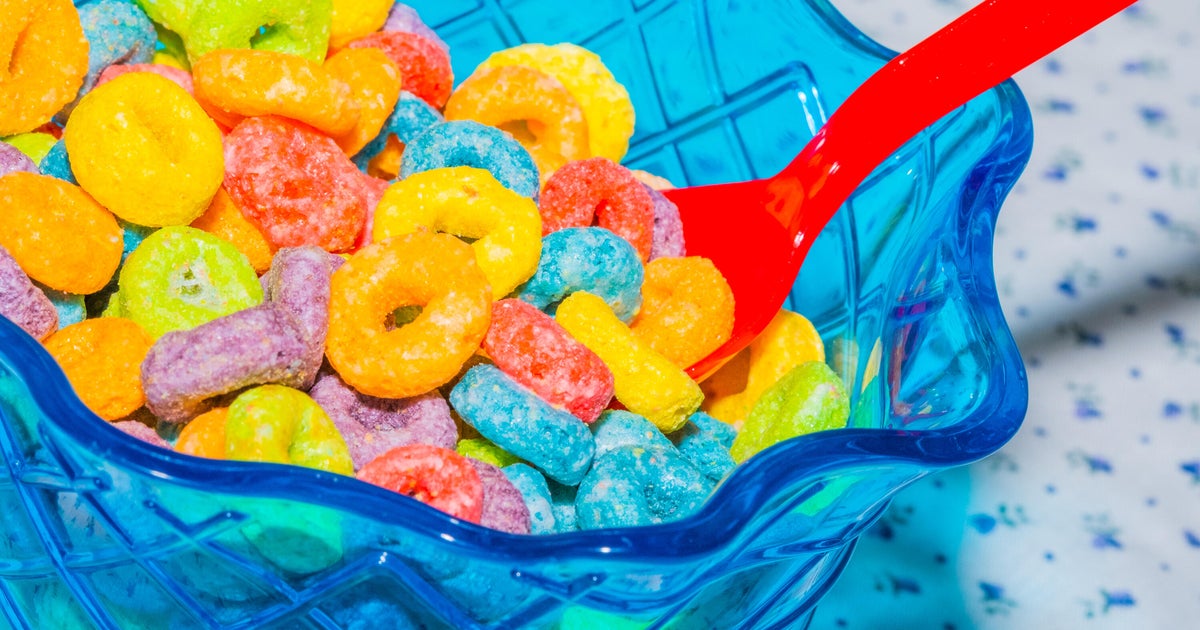The FDA’s move stops short of the outright ban that had been floated for in Kennedy’s “Make America Healthy Again” platform from the campaign trail. Instead, it relies on what the Department of Health and Human Services said was a “national standard and timeline for the industry” to voluntarily make the switch.
“Let’s start in a friendly way and see if we can do this without any statutory or regulatory changes. But we are exploring every tool in the toolbox to make sure this gets done very quickly,” FDA Commissioner Marty Makary told reporters at an event to announce the plan.
Makary said he had had “wonderful meetings with the food industry” and claimed that they are eager to remove artificial dyes from the food supply.
“They want to do it. So why go down a complicated road with Congress when they want to do this,” Makary said.
HHS says the FDA will be “working with industry to eliminate six remaining synthetic food dyes” and will also be accelerating the review and approval of some new natural color additives.
Response from the food industry
The food dye industry denied that there was a safety concern with artificial dyes, citing past reviews by the FDA and other international authorities, and said that their use is “essential for consistency, visual appeal, and consumer trust in food products.”
“Requiring reformulation by the end of 2026 ignores scientific evidence and underestimates the complexity of food production. The process is neither simple nor immediate, and the resulting supply disruptions will limit access to familiar, affordable grocery items,” the International Association of Color Manufacturers said in a statement after the announcement.
The group representing milk, cheese and yogurt manufacturers, the International Dairy Foods Association, announced a “voluntary” pledge for some of its members stop adding artificial colors to producs supplied to school lunches.
The National Confectioners Association, which represents candy brands, was noncommittal in their response, saying that they “look forward to working with the Trump Administration and Congress on this issue.”
A statement from the Consumer Brands Association, which represents industry giants from Coca-Cola to WK Kellogg, also stopped short of pledging to remove all synthetic dyes by 2026, but said they “appreciate that the administration has reasserted their leadership” in response to a patchwork of state laws.
“Removing these safe ingredients does not change the consumer packaged goods industry’s commitment to providing safe, affordable and convenient product choices to consumers,” the association said.
Why Makary opposes synthetic dyes
Ending the use of artificial dyes has long been a goal of Kennedy’s agenda, over concerns that these colors are inflating the consumption of unhealthy foods and raising the risk of potentially worrying behavioral changes in children, among other risks.
“Why are we taking a gamble? Parents, moms and dads have also tried to raise attention to this issue. Some parents have observed that these chemicals cause hyperactivity and even aggressive behavior, and that it subsides when the chemicals are removed from the diet,” said Makary.
Makary said that the scientific community “has conducted a number of studies raising concerns about the correlation” between synthetic dyes derived from petroleum and health conditions like ADHD, obesity, stomach or digestive issues and allergies.
“Other studies have found that artificial colors that create vibrant colors mess with the child’s developing brain to make ultra-processed foods more attractive, even when the child already feels full,” said Makary.
Under the Biden administration, the FDA moved to revoke the authorization for one synthetic dye, Red 3, after studies suggested that the color additive could cause cancer in laboratory animals at high doses.
The food and drug industry has a few years to stop using the food dye completely. Makary said they are asking companies to stop using the dye sooner than the deadlines laid out by the agency under the law, which are as late as 2028 for drugmakers.
While FDA officials at the time said the way that Red 3 caused cancer in animals did not apply to humans, officials said their hands were tied by a law called the Delaney Clause that required them to pull any additives from the market shown to cause cancer in animals.
The agency has faced calls for years to pull other synthetic food dyes derived from petroleum like Red 40, which is largely absent from food in some other countries.
Pressure on the agency has stepped up in recent years, after an influential report by California authorities in 2021 concluded that synthetic food dyes “can cause or exacerbate neuro-behavioral problems in some children.” A handful of states have now moved to ban the use of these synthetic food dyes in school meal programs.
For years in Europe, companies adding Red 40 and some other synthetic dyes have also had to add a warning label to their products saying that they “may have an adverse effect on activity and attention in children.”
However, FDA officials had previously said that the data was a far cry from being enough to merit banning the dyes. The agency also closely oversees the production of synthetic food dyes, checking for impurities that might result in a safety risk.
Makary said Tuesday’s announcement calling for food companies to stop using the artificial dyes “fulfills the administration’s promise to use both gold-standard science and common sense.”
“For the last 50 years, we have been running one of the largest uncontrolled scientific experiments in the world, on our nation’s children, without their consent,” said Makary.
Food and Drug Administration, Robert F. Kennedy Jr., FDA, RFK Jr.
#FDA #stops #short #synthetic #food #dye #ban #calls #industry #stop

